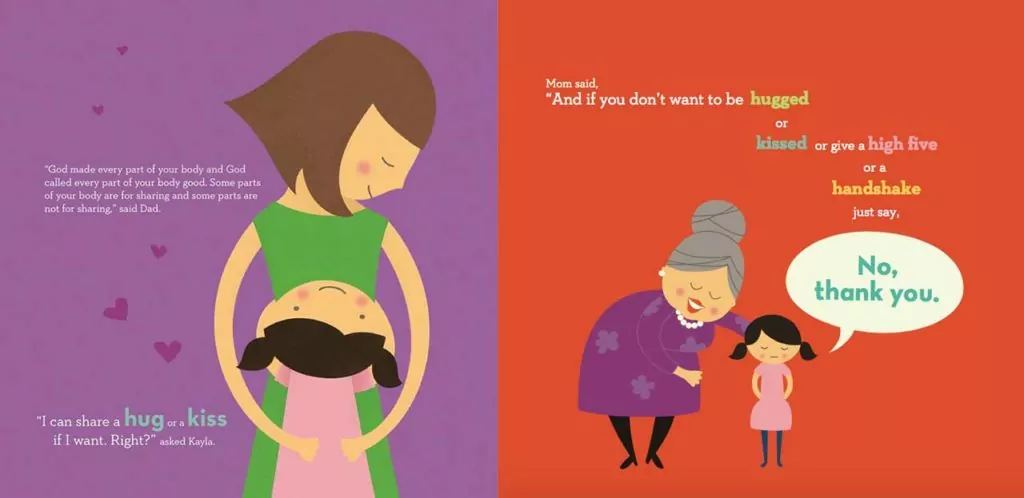Five things I wish I had known... about being a father
As I have met many fathers around the country at conferences and homeschool conventions, I am often reminded of my own time as a father with three children in the 1970s, 80s and early 90s.
Charles Dickens used a phrase to describe the time of the French Revolution that in many ways describes my experience as a parent – it was the “best of times and the worst of times.” Nothing in my life has given me as much fulfillment and joy as being a father to my children. I can also now see that nothing has been as difficult, even though at the time I was blissfully oblivious to most of my weaknesses and shortcomings. Only as my children have become adults have many of my own failures surfaced.
What follows are five of those “blind spots” to which I was completely unaware as a young father and that have come to light only in the past few years.
1) I did not see that loving my children is different from worshiping them
We are all in some way unconscious idolaters in our hearts. For some of us, our prevalent idol is our job, money, success, personal recognition, fame, leisure time, entertainment, sports, sex, intellectual attainment or even religious achievement or Christian ministry. These are all perfectly innocent pursuits in themselves until they come to occupy the central place in our hearts around which all else revolves – the place reserved for God alone.
I did not recognize it at the time, and I would have vehemently denied it if you had suggested it to me, but my children became my predominant idol of choice, though there were others always waiting in the wings, vying for my attention. I taught in their Christian high school and coached their basketball teams, coached all their little league teams and was always eyeball deep in all they did.
Only from the distance of more than a decade have I realized that much of the recognition, success and achievement that my involvement in their lives encouraged was for me as much as for them, because their success made me look like a successful father. “My, what well-behaved, smart, successful children Robert and Jill have. They must be wonderful parents.”
All of our idolatry is really in some way the exaltation of ourselves. I have discovered that my children had indeed, very subtly, become idols in my life. I was too busy congratulating myself for the wonderful parenting job I was doing for that thought ever to enter my mind!
2) I did not know that the goal of parenting was not to be the perfect parent or even the best parent I could possibly be, but to be a parent who is a repentant sinner
I did not know that the way to a real relationship with my children was to walk in the light with them, not by living in darkness, convincing myself that while I was not the perfect parent, I was at least in the top echelon. Oh, there were occasional flashes of lightning that illuminated the fact that I was nowhere close to a perfect parent, but after a brief time of uneasiness, I was always able to return to my comfortable darkness.
1 John 1:7 encourages us to “walk in the light,” and “walk” implies a way of life. I didn’t understand that an open, daily recognition of weakness and dependency on the Lord and not my superior parenting skills was the way to true relationship with my children. 1 John 1:7 says that “fellowship (genuine relationship) one with another” is the result.
When my sons were early teenagers, both came to me on separate occasions for help in resisting the pornography that a neighbor boy had shown them. I counseled them on the dangers of pornography, how addictive it is and how destructive it can be to their future relationship with their wives. I then prayed with them that God would give them the power to resist. I was being the perfect father, standing for righteousness, but not being a transparent, repentant one. I didn’t understand that parenting by the gospel meant walking in the light with them, confessing to them my own struggles with pornography over the years, and then praying for us both that in our weakness God would be our power. I missed a golden opportunity to strengthen my relationship with my sons.
3) I did not know that I shouldn’t compare my children with other children, either positively or negatively
In 2 Corinthians 10:12, Paul says it is foolishness to compare ourselves with others. The only standard for comparison is the law of God, whereby we are all judged as sinners, including our children.
My modus operandi was to proudly compare my children to others around me and to invariably find them far superior. As a result, I unconsciously ignored besetting sins in their lives for which they needed their father to help them face; not only the obvious sins of the flesh, but pride, self righteousness, the fear of man, etc. However, I was unable or unwilling to see them clearly and therefore unable to help them to see themselves because of my pride in their performance compared to others.
On the other hand, some parents are dissatisfied with their children for what they see as always falling short of the performance of other children. If we are dissatisfied with our children, be assured that it will be communicated to them, no matter how hard we try not to do so. The result will be defeat and discouragement because they will feel they can never measure up enough to please us.
Parenting by the gospel rather than the law involves an evaluation of a child’s gifts and abilities so that unrealistic expectations are not imposed upon him or her. Gospel parenting is practically applied as the parent models for his child how to handle besetting sins (laziness, making excuses, irresponsibility, taking offense, etc.) by the parent facing those sins squarely and openly in his own life and then repenting! Without this step, “What you do speaks so loudly I cannot hear what you say” will be the order of the day. All children have a powerful “hypocrite-detector” that improves exponentially in effectiveness as they grow older. Comparing our children with others is foolish because it leads to self-righteousness when children are judged as superior, or discouragement and even rebellion when parents feel their children never seem to reach their standard of achievement.
How we approach our children, by law or gospel, reflects how we see our relationship with God. Since I am most generally an “older brother” from the parable of the prodigal son, my tendency is to see myself, and therefore my children, as superior. A “younger brother” will see himself and therefore his children as failures, never quite measuring up. But we are all sinners, loved by God with a love that is not in any way affected by our sin. It is seeing God’s love for us as fathers that will allow us to love our children in the same way and free us from comparing them with others.
4) I did not know that I was creating a default mode in the hearts of my children that would either help them to think the best of others or foster judgment and criticism
When my oldest son was in college, he was the head-resident on his floor in his dorm, charged with the very loose responsibility of keeping order on the floor. On a visit to campus, I asked him about the other boys on the floor, which included a good number of rather rowdy football players. “Oh Dad, they are just a bunch of meat-heads.” His attitude of scorn and judgment struck me like a thunderbolt and I heard the Lord say to me, “He got that critical attitude straight from you!”
I am sorry to say that much of the heritage I have left with my children that they now carry with them is judgment and criticism. I have an opinion about what everyone ought to do, even when I have no responsibility in their lives, and I do not hesitate to make that opinion known. How much better to love them with a love that covers all things and does not expose sin but believes and hopes for the best in them (1 Corinthians 13).
Too bad that is not my spontaneous reaction! My default mode is to be critical and judgmental. As they were growing up my children constantly heard me be critical of others and the decisions they made, the lifestyle they chose to live and the friends they kept.
It is not my job to even have an opinion about what others do if I have no God-given authority in their lives. They answer to their own master and not to me (Romans 14:4).
I was sharing my besetting sin of critically judging everyone I see with a friend. His reaction was, “Oh, we all do that.” My response to him was, “So, what’s your point? Do the sins of others excuse me to sin? Does ‘everyone does it’ give me a free pass?”
As we Andrews are recognizing this sin, acknowledging it and repenting, the Lord is graciously beginning to reset our default mode, even as adults. This is the only possible way for me to “Be holy, even as I am holy”—not by trying harder but by facing my sin, acknowledging it, repenting and trusting the Spirit within to change my critical heart. I know it will be a life-long process.
Have you ever recognized a besetting sin of yours reproduced in your children? What was it?
5) I did not know that there are times to be a sympathetic listener and not an answer man who can “fix the problem”
James 1:19 says to be “swift to hear and slow to speak.” Legions are those to whom I have done just the opposite. I have had correct biblical answers to questions they really weren’t asking me, though I was convinced they should be. More often than not, they already knew the answer—they just needed me to listen, understand and then encourage them to trust the Lord for the power to do what they already knew to do. There is nothing less attractive than an answer man who is always the teacher and never the learner himself.
Just recently I fell into the trap again of giving a close friend the right answer for what he should do about a vicious personal attack by a member of his extended family, someone with whom he had grown up and who supposedly loved him. His confidence as a man was shaken. He did not need to hear initially what he should “do,” but that I loved him, as did God, Who also believed in him, was pleased with him and had him right on schedule in his spiritual growth. There would be plenty of time later to let God show him a course of action.
Interestingly enough, this family crisis is bringing my friend’s immediate family together; what the enemy meant for evil, God intended for good.
This has been my pattern over the years with my wife and children as well. Their struggles have more often than not elicited an answer as to what they should do rather than addressing the insecurity that comes from wondering whether or not their problem-solving father really cares about them as people. As the one who represents God in my family, my attitude is to be a reflection of His, and His primary concern is His relationship with me, not what I do, what I say or the theology I believe. If I understand His great love for me in spite of what I do, what I do will naturally and unconsciously change.
Conclusion
Seeing these five failures in my parenting that we have discussed over the past few weeks has surprisingly been a source of encouragement to me and a means of strengthening the relationship between my wife and me and our grown children. Grandfathers and grandmothers are still little children in God’s classroom of learning to face their sin, repent and walk by faith!
Does it make sense to you that openly facing failure as a parent can strengthen family relationships and be a source of genuine encouragement to all family members?
Robert Andrews has been a college campus evangelist, high school chemistry teacher and basketball coach, church teaching elder, church planter, national conference speaker and certified business coach and is a husband to one, a father to three and a grandfather to ten. His website, where this article was first published, is www.gospelparenting.com....

















